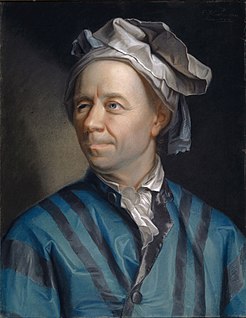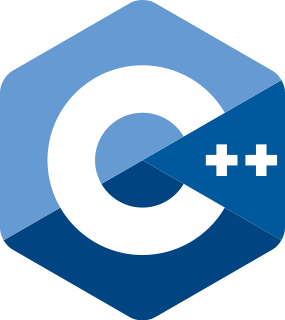
Piter De Vries is a fictional character from the Dune universe created by Frank Herbert. He is primarily featured in the 1965 novel Dune, but also appears in the Prelude to Dune prequel trilogy (1999–2001) by Brian Herbert and Kevin J. Anderson.

A Mentat is a fictional type of human, presented in Frank Herbert's science fiction Dune universe. In an interstellar society that fears a resurgence of artificial intelligence and thus prohibits computers, Mentats are specially trained to mimic the cognitive and analytical ability of electronic computers.

Paul Atreides is a fictional character in the Dune universe created by Frank Herbert. Paul is a prominent character in the first two novels in the series, Dune (1965) and Dune Messiah (1969), and returns in Children of Dune (1976). The character is brought back as two different gholas in the Brian Herbert/Kevin J. Anderson novels which conclude the original series, Hunters of Dune (2006) and Sandworms of Dune (2007), and appears in the prequels Paul of Dune (2008) and The Winds of Dune (2009).

Thufir Hawat is a fictional character in the Dune universe created by Frank Herbert. He is primarily featured in the 1965 novel Dune, but also appears in the Prelude to Dune prequel trilogy (1999–2001) by Brian Herbert and Kevin J. Anderson. The character is brought back as a ghola in the Herbert/Anderson sequels which conclude the original series, Hunters of Dune (2006) and Sandworms of Dune (2007).

Mental calculator is a term to describe a person with a prodigious ability in some area of mental calculation.

Paul Baran was a Polish-born Jewish American engineer who was a pioneer in the development of computer networks. He was one of the two independent inventors of packet switching, which is today the dominant basis for data communications in computer networks worldwide, and went on to start several companies and develop other technologies that are an essential part of modern digital communication.

The technocracy movement is a social movement which arose in the early 20th century. Technocracy was popular in the United States and Canada for a brief period in the early 1930s, before it was overshadowed by other proposals for dealing with the crisis of the Great Depression. The technocracy movement proposed replacing politicians and businesspeople with scientists and engineers who had the technical expertise to manage the economy.

Dune 2000 is a real-time strategy video game, developed by Intelligent Games and released by Westwood Studios in 1998 for Microsoft Windows. It was later ported to the PlayStation in 1999. It is a partial remake of Dune II, which is loosely based on Frank Herbert's Dune universe. The story of the game is similar to Dune II, and is continued in Emperor: Battle for Dune. The game uses a similar game engine to Westwood's Command & Conquer: Red Alert. Although Dune 2000 was originally intended to be a remake of Dune II, the plotline differs completely and makes a reference to the execution of Mentat Amon of House Ordos and the replacement of the Harkonnen Mentat from Dune II, Radnor, by Hayt De Vries. The story is told with full motion video.

House Ordos is a mercantile House in the Dune universe as presented in the Westwood Studios Dune video games produced from 1992 to 2001. The Ordos have no army of their own, relying on their wealth to recruit mercenaries. The Ordos excel at interfering in the conflict between House Atreides and House Harkonnen. They are known as "the rebellion of Dune". The House is listed in the non-canon Dune Encyclopedia (1984) by Willis E. McNelly but has never been mentioned in any of the novels.
The Search For Snout is the third book in the series Rod Allbright's Alien Adventures. It was written by Bruce Coville and first published in 1995. In the UK it was published under the title Aliens Stole My Dad, as 'snout' is British slang for tobacco

F&W Media International Limited, formerly known as David & Charles Publishers, is a publisher of illustrated non-fiction books, eBooks, digital products, craft patterns and online education courses. It is the international arm of F+W and owner of the David & Charles imprint, which specialises in craft and lifestyle publishing, including sewing, knitting, crochet, quilting, papercraft, vintage, cake decorating and mixed crafts. The company also owns and runs the Stitch Craft Create ecommerce store and publishing brand in the UK.
Martin v. Struthers, 319 U.S. 141 (1943), is a United States Supreme Court case in which the Court held that a law prohibiting the distribution of handbills from door to door violated the First Amendment rights of a Jehovah's Witness, specifically their freedom of speech. The ruling was 5-4 and deemed trespassing laws a better fit for the town imposing the ordinance.
A mentat is a profession in the fictional Dune universe created by Frank Herbert.
Mind Performance Hacks: Tips and Tools for Overclocking Your Brain is a self-help book using psychology and mnemonic techniques to improve thinking skills such as memory, creativity, mental math, and other cognitive abilities by Ron Hale-Evans, who wrote and researched approximately 80% of the book material. It is also notable in its use of Perl programming scripts to supplement a few of the hacks. Inspired by the Mentat Wiki, also created by Ron Hale-Evans, the book was published by O'Reilly Media in February 2006 as part of the O'Reilly Hacks series. It is considered an unofficial sequel to the earlier Mind Hacks.
Mentat Portable Streams (MPS) was a platform independent implementation of the UNIX System V STREAMS networking protocol stack, normally sold with the Mentat TCP stack providing TCP/IP support. Portable Streams was used in a number of commercial products, including Apple Computer's Open Transport, AIX, VxWorks, Palm OS's Cobalt, Novell's UnixWare and other systems. Mentat also ported the system to Linux and Windows NT as a standalone product. Portable Streams was written by Mentat, who was purchased by Packeteer in 2004.
DreamWorks Pictures is an American film production label of Amblin Partners. It was founded in 1994 as a film studio by Steven Spielberg, Jeffrey Katzenberg and David Geffen, of which they owned 72%. The studio was formerly distributing its own and third-party films by itself. It has produced or distributed more than ten films with box-office grosses of more than $100 million each.

Sisterhood of Dune is a 2012 science fiction novel by Brian Herbert and Kevin J. Anderson, set in the Dune universe created by Frank Herbert. It is the first book in their Great Schools of Dune prequel trilogy, which itself is a sequel to their Legends of Dune trilogy. The book is set eighty years after the events of 2004's Dune: The Battle of Corrin, in which the human military finally defeat the thinking machine armies of Omnius. Now, the fledgling Bene Gesserit, Mentat and Suk Schools, as well as the Spacing Guild, are threatened by the independent anti-technology forces gaining power in the aftermath of the Butlerian Jihad. The Great Schools of Dune trilogy, first mentioned by Anderson in a 2010 blog post, will chronicle the early years of these organizations, which figure prominently in the original Dune novels.

Mentats of Dune is a 2014 science fiction novel by Brian Herbert and Kevin J. Anderson, set in the Dune universe created by Frank Herbert. It is the second book in their Great Schools of Dune prequel trilogy, which itself is a sequel to their Legends of Dune trilogy. Set nearly a century after the events of 2004's Dune: The Battle of Corrin, the novel continues to chronicle the beginnings of the Bene Gesserit, Mentat and Suk Schools, as well as the Spacing Guild, all of whom are threatened by the independent anti-technology forces gaining power in the aftermath of the Butlerian Jihad. The Great Schools of Dune trilogy, first mentioned by Anderson in a 2010 blog post, chronicles the early years of these organizations, which figure prominently in the original Dune novels.

The Dune prequel series is a sequence of novel trilogies written by Brian Herbert and Kevin J. Anderson. Set in the Dune universe created by Frank Herbert, the novels take place in various time periods before and in between Herbert's original six novels, which began with 1965's Dune. In 1997, Bantam Books made a $3 million deal with the authors for three Dune prequel novels, partially based upon notes left behind by Frank Herbert, that would come to be known as the Prelude to Dune trilogy. Starting with 1999's Dune: House Atreides, the duo have published 11 Dune prequel novels to date. In 2011 Publishers Weekly called the series "a sprawling edifice that Frank Herbert’s son and Anderson have built on the foundation of the original Dune novels."

Navigators of Dune is a 2016 science fiction novel by Brian Herbert and Kevin J. Anderson, set in the Dune universe created by Frank Herbert. It is the third book in their Great Schools of Dune prequel trilogy, which itself is a sequel to their Legends of Dune trilogy. Set nearly a century after the events of 2004's Dune: The Battle of Corrin, the novel continues to chronicle the beginnings of the Bene Gesserit, Mentat and Suk Schools, as well as the Spacing Guild, all of which are threatened by the independent anti-technology forces gaining power in the aftermath of the Butlerian Jihad. The Great Schools of Dune trilogy, first mentioned by Anderson in a 2010 blog post, chronicles the early years of these organizations, which figure prominently in the original Dune novels.















